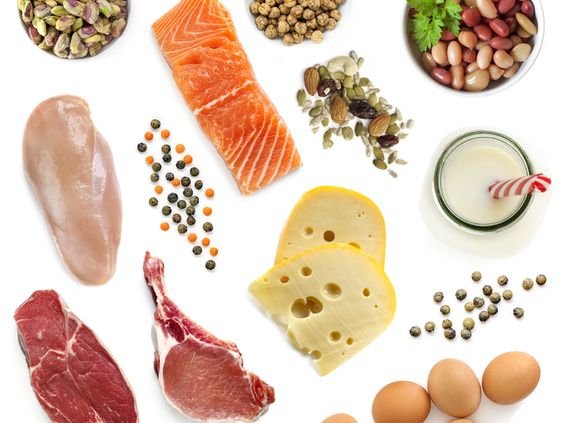
5 Essential ways to make your dinner healthier
Absolutely! When it comes to making dinner healthier, it’s all about focusing on nutritious ingredients and cooking methods that prioritize your well-being. In these 5 essential ways to make your dinner healthier, we emphasize choosing whole foods rich in vitamins, minerals, and fiber to nourish your body while satisfying your taste buds. Opting for lean proteins, plenty of vegetables, whole grains, and healthy fats like olive oil helps create a balanced meal that promotes overall health.
Additionally, cooking methods such as grilling, baking, steaming, or sautéing with minimal oil can preserve nutrients without adding unnecessary calories or unhealthy fats. By being mindful of your choices and embracing wholesome ingredients and smart cooking techniques, you can enjoy a delicious and nutritious dinner that supports your health goals.
Incorporate More Vegetables:
Incorporating more vegetables into your meals enhances both flavor and nutritional value. Making vegetables the star of your plate adds variety in taste and texture while supplying essential nutrients for overall well-being. Aim for a colorful mix—like spinach, kale, bell peppers, broccoli, and carrots—to get a wide range of vitamins and minerals. Leafy greens such as spinach and kale are packed with vitamins A, C, and K, plus folate, iron, and calcium, supporting vision, immunity, and bone health.
Bell peppers are rich in vitamin C and also offer vitamin A, B6, and potassium. Broccoli delivers vitamin C, K, and folate, along with sulforaphane, a powerful anti-inflammatory compound. Carrots provide beta-carotene (a precursor to vitamin A), fiber, potassium, and vitamin K1—beneficial for skin, eyesight, and heart health. Whether in salads, soups, stir-fries, or roasted dishes, these vegetables bring both nutrition and delicious depth to your meals. Incorporating vegetables is one of the 5 essential ways to make your dinner healthier, helping support long-term health, increase energy levels, and reduce the risk of chronic diseases.

Choose Lean Protein Sources:
Choosing lean protein sources is a key part of maintaining a healthy, balanced diet. These proteins are low in fat—especially saturated fat—while providing essential nutrients like protein and omega-3 fatty acids. Opting for lean choices such as skinless poultry, fish, tofu, beans, or lentils instead of fatty meats can help reduce LDL (“bad”) cholesterol levels and support heart health.
Including lean proteins is one of the 5 essential ways to make your dinner healthier. Protein supports muscle maintenance, tissue repair, immune function, and overall development, while omega-3s (found in fish) aid brain and heart health. Lean proteins also promote satiety, making them helpful for weight control.
Skinless chicken or turkey breast, fatty fish like salmon or trout, tofu, beans, and lentils are all excellent lean protein sources. These options are not only nutritious but also versatile, helping you create balanced, health-focused meals with ease.

Use Healthier Cooking Methods:
Switching to healthier cooking methods is a crucial step toward improving dietary habits and overall well-being. This shift helps reduce unhealthy fats and excess calories while preserving the nutrients in your food. Traditional frying, though tasty, adds significant fat and has been linked to obesity, heart disease, and high cholesterol.
In contrast, healthier cooking methods—such as grilling, baking, steaming, and sautéing with minimal oil—are among the 5 essential ways to make your dinner healthier. These techniques help retain the natural nutrients and flavors of food without excessive fat. Grilling lets fat drip away while adding a smoky taste. Baking achieves crisp textures with less oil, making it ideal for meats, vegetables, and even healthier desserts.
Steaming gently cooks food using vapor, preserving texture, color, and nutritional value—especially in vegetables and seafood. Sautéing with a small amount of oil over medium heat allows for flavorful meals without added heaviness, giving you control over fat content.
Incorporating these cooking methods into your routine is one of the 5 essential ways to make your dinner healthier. It enhances the taste and nutritional quality of your meals while supporting long-term health. Small changes in how you cook can lead to big improvements in how you feel.

Limit Processed Foods and Added Sugars:
When it comes to maintaining a healthy diet, one of the 5 essential ways to make your dinner healthier is to limit processed foods and added sugars. Processed foods often contain unhealthy ingredients such as added sugars, trans fats, and excessive sodium, while lacking essential nutrients. Added sugars—often hidden as high fructose corn syrup, cane sugar, or names ending in “-ose” like sucrose or dextrose—are linked to obesity, type 2 diabetes, and heart disease.
Processed foods also frequently contain unhealthy fats, such as trans and saturated fats, which can raise cholesterol levels and increase heart disease risk. Sodium levels in processed items are usually much higher than necessary, contributing to high blood pressure and stroke risk.
In contrast, whole, unprocessed foods like fruits, vegetables, whole grains, and lean proteins offer essential nutrients without harmful additives. Whole grains supply fiber, vitamins, and minerals for digestive health, while fruits and vegetables are packed with antioxidants and fiber. Lean proteins—like poultry, fish, beans, and legumes—offer nutrition without the added fats found in processed meats.
Shifting to whole, unprocessed foods is a core part of the 5 essential ways to make your dinner healthier. It ensures you’re nourishing your body with what it truly needs, while reducing long-term risks tied to diet-related diseases.

Watch Portion Sizes:
Being mindful of portion sizes is one of the 5 essential ways to make your dinner healthier. It plays a key role in maintaining a balanced diet and preventing overeating, which can lead to weight gain and other health concerns. Managing portion sizes helps control calorie intake while ensuring nutritional needs are met.
Using smaller plates, bowls, and utensils is a simple yet effective strategy—research shows people tend to eat more when using larger dishware. Downsizing dishes can help naturally limit portions and prevent overconsumption. Equally important is listening to your body’s hunger and fullness signals. Mindful eating encourages eating when truly hungry and stopping when comfortably full, helping to avoid mindless snacking or overeating.
Structuring meals with a balanced plate—half vegetables, a quarter lean protein, and a quarter whole grains—is another great approach. This mix supports better nutrition by providing essential vitamins, minerals, fiber, and protein. Vegetables add bulk and nutrients; lean proteins like poultry, fish, beans, or tofu support satiety and muscle health; and whole grains deliver fiber and steady energy.
By focusing on portion control and plate balance, you support long-term health and make smarter, more conscious choices—another important step in the 5 essential ways to make your dinner healthier.

Conclusion:
Transforming your dinner into a healthier, more balanced meal doesn’t require drastic changes—just smart, mindful choices. By incorporating more vegetables, choosing lean proteins, switching to healthier cooking methods, limiting processed foods and added sugars, and practicing portion control, you can nourish your body and support long-term wellness. These 5 essential ways to make your dinner healthier are simple, sustainable, and effective strategies to improve your overall diet and lifestyle—one meal at a time.
FAQs
If you have questions about our 5 Essential ways to make your dinner healthier feel free to ask!
